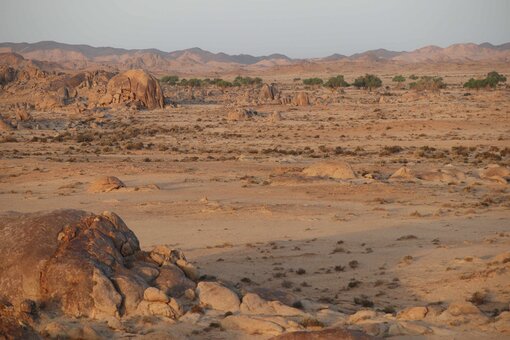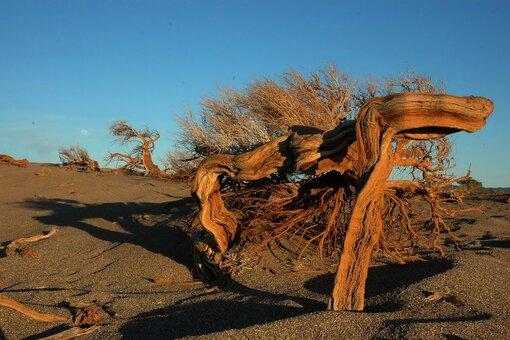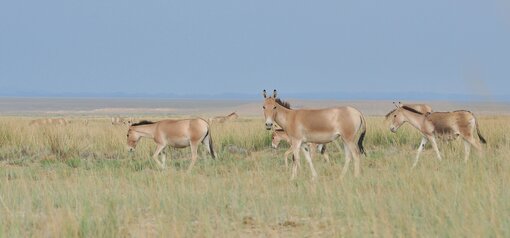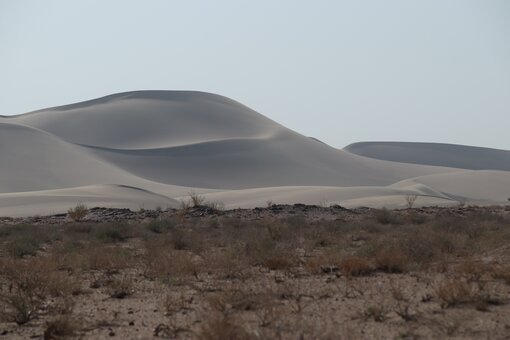The Mongolian Gobi Desert is unique in the world for its extent, diversity and pristine nature. The Great and Small Gobi are home to an extraordinary number of rare plant and animal species - including wild camels, asiatic wild asses, Przewalski's horses, gobi bears, lynxes and snow leopards - as well as an enormous range of intact desert landscapes and geological features.
Mongolia's government had already included the Mongolian Gobi in the UNESCO World Heritage Convention's Tentative List in 2014. The Ministry of Environment and Tourism of Mongolia now asked for support in preparing a challenging nomination dossier for UNESCO, for which the Succow Foundation is available and supporting with its many years of expertise.
In the course of the project, the critical threats to the ecosystem and species of the World Heritage Site to be nominated are now being analysed. The goal is to use this process to mitigate existing and future threats, for example from mining and transportation.
"Successful World Heritage nomination of these deserts will encourage local decision makers to invest in the protection of these landscapes and ecosystems and further improve their management. It can also support the availability of additional international funding to strengthen the protected areas system," said Jens Wunderlich, Head of Department Protected Areas & Biosphere in the Succow Foundation.
The Deutsche Stiftung Welterbe supports the project through a co-financing share. Founded by the Hanseatic cities of Stralsund and Wismar, it supports endangered World Heritage sites outside Germany and thus contributes to the balance of the World Heritage List.
Thomas Beyer Chairman of the Board of the Deutsche Stiftung Welterbe: "There are few places in this world with such an impressive landscape and such a unique natural environment as the Gobi Desert. It is important to preserve this ecosystem and we are therefore very happy to support the application."
The project team intends to involve a large range of scientists, NGOs and civil society to encourage commitment and to excavate the huge and long-term data- and knowledgebase on species and ecosystems of the Gobi. Therefore, the Succow Foundation involved several renowned organisations into the project team, namely the International Takhi Group Mongolia (ITG), Mongolian Bird Conservation Center (MBCC) and the Inland Norway University of Applied Sciences, Department of Forestry and Wildlife Management (INN).
This project is funded by the German Federal Environment Ministry’s Advisory Assistance Programme (AAP) for environmental protection in the countries of Central and Eastern Europe, the Caucasus and Central Asia and other countries neighboring the European Union. It is supervised by the Federal Agency for Nature Conservation (BfN) and the German Environment Agency (UBA).
![[Translate to EN:] Banner Stiftung](/fileadmin/_processed_/b/c/csm_banner-stiftung_fee6c1c492.jpg)



